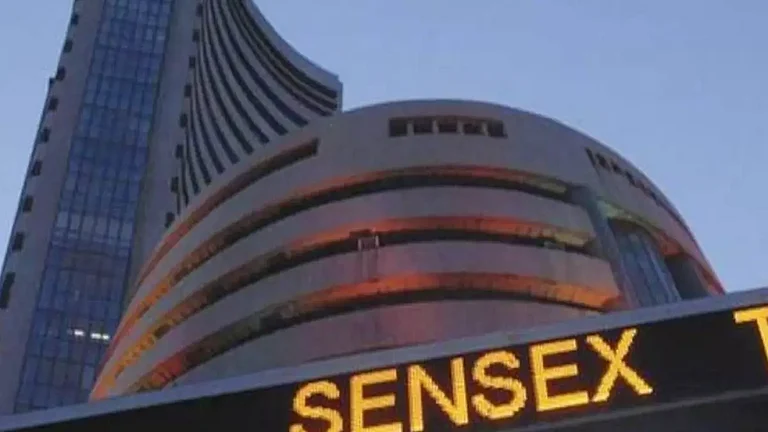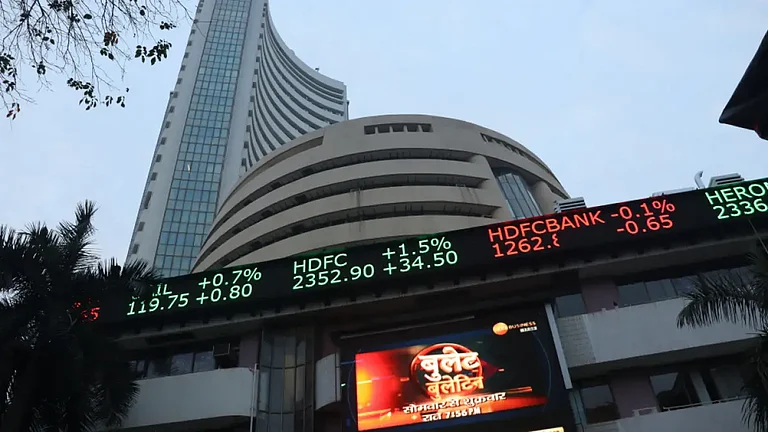Global markets were caught in a whirlwind of pessimism earlier this week. Japan’s unexpected rate hike, looming recession fears in the US and the ongoing conflict in the West Asia, perhaps a perfect recipe for disaster in terms of macro outlook, pushed markets in deep red.
On Wall Street, the fear gauge (VIX) spiked to 65, its highest level since the 2020 market crash. Following cues, domestic benchmark indices—Sensex and Nifty—slipped back into the red territory on Thursday, erasing the previous day's gains. Interestingly, it was only a month back when the banners of optimism were dominating Dalal Street, but global tensions seem to have taken the better of investors.
Even so, India is still in a relatively strong position with no major headwinds ahead, as of now. The big question is whether India’s growth story can hold strong against the global bears wreaking havoc in stock markets.
How it Started and How it's Going
The initial mood of the market turned red when Nasdaq, tech-heavy index, fell into correction territory last week. On Monday, this triggered a broader market decline as fears around US recession gained traction. Recently, Goldman Sachs economists increased the probability of a recession to 25 per cent (for next year), up from the previous estimate of 15 per cent.
Adding to the turmoil, Japan’s interest rate hike pushed the unwinding of yen carry trades. As per a report by Elara Securities, the US and India have been the top recipients of yen carry flows, since January 2023. All these factors prompted Indian markets to follow suit and decline.
However, the current bear market comes at a time when many saw India as a top bet among emerging markets.
In a recent RBI meeting, Governor Shaktikanta Das projected India's GDP growth rate at 7.2 per cent for FY25. India's forex reserves have also reached a new high of $675 billion as of August 2.
Meanwhile, the current account deficit remains "eminently manageable," and a rise in private consumption is expected for FY25, largely fueled by a recovery in rural demand and easing inflation.
Despite the euphoric figures, lower-than-expected quarterly earnings coupled with a global downturn can dampen the outlook a bit.
"India's growth story is indeed facing challenges due to global bearish trends. A global downturn could eventually impact India's growth trajectory. The current global scenario, marked by geopolitical tensions and a potential global recession, could affect exports, foreign investments, and overall investor sentiment," said Amit Goel, co-founder & chief global strategist, Pace 360.
As for markets, the risk-off sentiment continues to prevail, with domestic markets tracking the movements of global equity indices. "Markets may have got little respite from the recent carnage, but indices may witness sharp intra-day volatility due to global uncertainty,” said Prashanth Tapse, senior VP (research), Mehta Equities Ltd.
Overall, the market sentiment remains cloudy for two main reasons. First, domestic institutional investors (DIIs) are now on par with foreign institutional investors (FIIs) in influence, unlike before when FIIs used to have the upper hand. Secondly, economic and geopolitical factors play a big role in shaping market sentiment, which can eventually lead to volatility. This was quite evident at the onset of the West Asia conflict.
"While the Investors are a little worried about the Indian markets following the Global trend, they understand and firmly believe in the structural India Growth story. Additionally, investors are taking solace in the fact that even in this rout the Indian markets are faring better," said Mohit Khanna, fund manager at Purnartha PMS.
Minding the Sentiment
India's volatility index, VIX, witnessed a surge of nearly 50 per cent earlier this week, signaling the growing uncertainty in the market. On Thursday, the markets did try to bounce back but ended up falling by another 0.7 per cent. Despite the clouds of volatility, analysts on Dalal Street are still confident about India’s relatively strong position as compared to global markets, seeing the current turbulence as more of a short-term bump.
"Though India looks much better placed than its global counterparts, we do not expect our markets to remain aloof from the events unfolding globally. We expect volatility to continue in the near term. Though our reaction to drawdowns in global markets would be lower due to strong domestic liquidity, it would be advisable to have a cautious view on markets in the short term," said Manish Chowdhury, head of research, StoxBox.
Some have also labelled the recent stock market rout as a much-needed correction, given that certain pockets of the market are overvalued.
While narrow market indices might seem reasonable when compared to historical averages and bond yields, many non-financial companies in the Nifty-50 are trading at higher-than-usual valuations based on their own history, a recent report by Kotak Institutional Equities read.
This overvaluation is even more pronounced in broader markets, especially in sectors like consumption, investment and outsourcing, with financial companies being the only exception.
It remains to be seen whether the drop in stock prices over the past few days will lead non-institutional investors to either change their stance or overlook the negative developments as another 'blip', the report added.
































